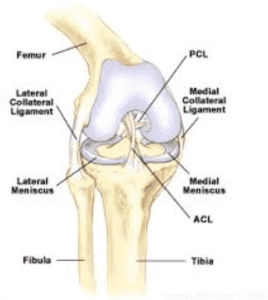Over the years since I, Dave Rossiter, graduated as a Physiotherapist, I have noticed a significant change in the way people with knee osteoarthritis have been advised to manage their condition. In my first role as a graduate rotational physiotherapist at the Albury Base Hospital back in 2004, I completed rotations through the Orthopaedic Ward. There, I regularly treated patients as young as 50-55 who had undergone a total knee replacement due to the pain and functional effects of osteoarthritis. However, back then it was often anticipated that a total knee replacement would only last 12-15 years.
Fast forwarding 15 years, much has changed in the management of knee osteoarthritis. There are now mainstream use of uni-condylar (or partial) knee replacements in lieu of replacing the whole joint in suitable candidates. More people are being recommended to gain education about the management of Osteoarthritis, exercise and manage their weight in accordance with the recently updated Royal Australian College of General Practitioners guideline on the management of hip and knee osteoarthritis.
Through the use of exercise and education programs like the GLA:D program, we are now seeing patients extend the life of their osteoarthritic hips and knees into their mid 60’s, which is much more preferential in terms of reducing the need for revisions due to the prosthetic wearing out. Given the increase in total knee joint replacements raised by 29% from 2005/6 to 2014/15 and the projected prevalence of osteoarthritis (all forms) in 2030 will be 900,000 people just in the 65-74 age bracket, it is definitely going to become a primary goal to implement the best practices available

However, the question still remains, just how long can we expect a total knee replacement to last.
A systematic review of case studies around the world was recently undertaken by J.T Evans et. al. (2019) and appeared in The Lancet. In this review, 30 case studies with follow-ups in excess of 15 years were analyzed, totaling 6,490 total knee replacements and 742 uni-condylar knee replacements. The pooled results of each group, taking into account the various types and manufacturers of the prostheses, revealed
- Survivability of a total knee replacement was 3% at 15 yearsand 94.8% at 20 years.
- Survivability of a uni-condylar knee replacement was 5% at 15 yearsand 81.9% at 20 years.
The clinical implications of this study include having greater awareness about the longevity of a total knee replacement prosthesis. With the average age of the population increasing, and more people in the 35-55 age group being diagnosed with osteoarthritis of the knee, the timeframe of a knee replacement can impact on choice of surgical versus conservative management.
If you would like to discuss these findings and review how we can assist with any conservative management options or would like more information about our GLA:D program, please contact the clinic on (02) 6041 3609.





